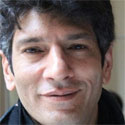
By Wajahat Qazi
09 April 2016
As I ambled towards the immigration counter I was directed towards at Dulles Airport, Washington DC, I overheard a Black police officer talking about "self-discovery" to his White female colleague. I looked at both the Black police officer and his White colleague. And then something strange happened. I, reflexively, began musing aloud on Islam and paradoxes. I looked the Black police officer in the eye and said, "I know myself through you because you are so different... but, in the final analysis, we are all the same. And this is one of the central insights of Islam, in the nature of a paradox." The Holy Quran appeared in front of my eyes; it was surreal, amazing.
The Black police officer seemed taken aback. He lost his equipoise for a second and immediately gathered himself.
This experience, though fleeting, was both profound and unsettling.
I then got to thinking about the Quran, recollecting the Divine verses where Allah says that difference(s) among mankind exist so that people could know each other. This is neither the accurate translation nor transliteration of the Quranic verse but captures its essence.
I am not a scholar of Islam. Unfortunately, my understanding of my religion is very pedestrian but I do understand--or, more accurately, have begun to understand--the philosophy, ideas and ideals that form the bedrock of my faith. What follows then is a lay but intense delineation of my understanding.
One of the fundamental insights of Islam is equality--both temporal and Divine. This premise flows from the essential Unity that defines Islam. Prosaically called monotheism, the ideal and idea of Unity in Islam is profounder. This idea or cardinal premise of Islam flows from Divine Unity which is reflected in the Unity of the Cosmos and Creation. The world then is a bit of a hologram, reflected in the essence of Divine Unity.
In this sense then, all Creation is One. Differences that define humans--race, ethnicity, colour and so on--are arbitrary constructs foisted upon people by time, place, location and power. These differences, however, are real in the sense that they have acquired 'constancy' over time and have become path dependent--so much so people believe in these 'imagined constructs'. This is not to demean or underplay culture, ethnicity or nationalism that flows from these constructs but merely to put a perspective on Islam and its fundamental premises, outlook and faith.
Harking back to the Quranic verse that acknowledges difference but yet views it as a means to know 'others', Islam then by enjoining its adherents to not to be fixated on identity and attempting to know others is inherently cosmopolitan. The inherent cosmopolitanism of Islam gives short shrift to what the detractors of the religion call its 'insularity' and 'parochialism'. The paradox is that Islam has retreated into itself and Muslims have either gone into a shell or are lashing out.
There are profound reasons for the 'ghettoisation' of the Muslim mind. These include the humiliating and coercive force employed by the machinery and apparatus of colonialism and imperialist marauding across the Muslim world, and the postcolonial Muslim states' abysmal condition and their warped relation with the West. The Muslim psyche stands scarred; this has led to a loss of confidence and the idiom of engagement with the world that flows is that of violence. Colonial violence and the depredations of post colonial condition of the Muslim world created a counter cyclical condition of 'structural violence' in much of the Muslim world. In the process, the essential message, philosophy and spirit of Islam got lost in the maze of depredation, violence and the inward retreat of Muslims.
Can this condition be remedied?
Probably.
However, redemption and catharsis lies within Muslims. The first step towards collective and individual redemption would be to understand the essence of Islam and adoption of Islamic principles with temporality and spatiality as the ideas that inform Islam's engagement with the world. The past should neither be forgotten nor jettisoned--the past is the bedrock of Muslim identity and history--but instead of employing it as a guide for insalubrious action, it should be harnessed to bring about the efflorescence and comprehensive improvement of the Muslim condition. This may mean a synthesis of the material, the here and the now, and the spiritual. To repeat, redemption lies within us and we owe this to Islam and humanity.
Source: huffingtonpost.in/wajahat-qazi/equal-in-an-unequal-world_b_9575834.html?utm_hp_ref=india




 Moderate Islamist here
Moderate Islamist here


0 comments:
Post a Comment